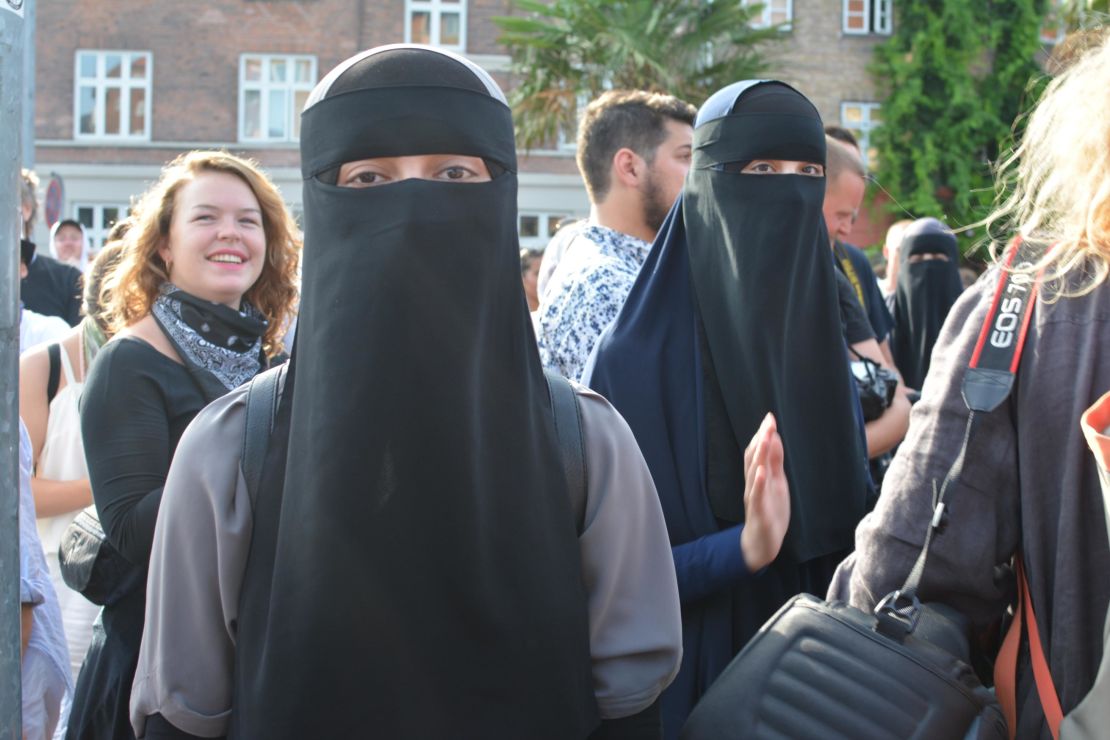A woman in Denmark has become the first person to be fined since a controversial law banning face coverings came into force this week.
Danish police said that a 28-year-old woman was fined 1,000 Danish kroner (about $155) Friday in H?rsholm, north of the capital, Copenhagen.
Police were called to a shopping mall there following an altercation Friday between the woman wearing the veil and another woman, during which the former’s face covering came off, a police spokesman said.
Both women received fines for public disorder, he said.
Critics say the legislation, passed in May, oppresses some Muslim women and violates their rights. The ban has been ridiculed for its vague language – and for outlawing all facial coverings in public – despite its backers clearly stating its real target is the Islamic face veil.
Under the new law, people found wearing facial coverings in public can be fined from 1,000 Danish kroner for a first offense up to 10,000 kroner (about $1,550) for a fourth violation.

Hundreds of demonstrators gathered in Copenhagen wearing burqas and other face veils as the law went into effect Wednesday. Police said they would not enforce the ban during the protest because people had the right to demonstrate.
Several women wearing niqabs – which fully cover the body but leave the eye area open – told CNN the ban would make it difficult for them to leave their homes, whether to take their children to school, shop for groceries or just move around their communities.
Rights group Amnesty International condemned the ban as a discriminatory violation of women’s rights that would have a particularly negative effect on Muslim women.
“Whilst some specific restrictions on the wearing of full face veils for the purposes of public safety may be legitimate, this blanket ban is neither necessary nor proportionate and violates women’s rights to freedom of expression and religion,” said Fotis Filippou, Amnesty’s deputy Europe director.
Martin Henriksen, a member of Parliament from the Danish People’s Party, which proposed the ban, said he was pleased with the progress of the law, which he described as an important step for the country and its values.
Other European nations also restrict face coverings. France banned the full face veil in 2011, while Belgium, Austria, the Netherlands and parts of Switzerland have restrictions in place. Some other European countries have debated the issue.
CNN’s Susanne Gargiulo and Angela Dewan contributed to this report.

